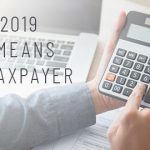What are Tax Reliefs?
Tax Reliefs are quite simply government-set schemes which allow you to pay less tax on specific income or gain tax back for specific expenditure.
There are four main types of tax relief which apply to everyone, there are also the usual ‘tax-deductible’ expenses which apply to self-employed people – but today we are going to focus on the four types of tax relief which can apply to everyone:
Pension Contributions
If you pay private pension contributions then you can actually gain up to 100% of your annual earnings in tax relief – meaning you won’t have to pay any tax on your pension contributions up to the amount of money you earn each year.
Technically, you are meant to get tax relief automatically if:
• Your employer takes your workplace pension contributions from your pay before deducting the income tax on the total amount
• Your pension provider claims the tax relief on your behalf at 20% and then adds it back into your pension
However always check for yourself since relying on anything to happen automatically is never a good idea! So you should definitely look into claiming tax relief on your pension contributions if:
• You pay income tax at a rate above 20% and your pension provider claims the first 20% tax relief for you
• Your chosen pension scheme isn’t already set up for ‘automatic tax relief’
• Someone else pays into your pension scheme for you or on your behalf
TOP TIP: Always check that you haven’t been still getting tax relief if the contributions into your pension scheme are more than your annual salary since the HMRC will request every penny back if this happens.
Charity Donations
This is quite a simple section because all charitable donations given by individuals are entirely tax-free! So you wont pay any tax on the donation you give to a charity and the charity themselves can then gain tax relief on the income if you pay via ‘Gift Aid’ or through your wages or pension via ‘Payroll Giving’.
Maintenance Payments
This allows you to claim back 10% of the total amount of Maintenance Payment you pay to an ex-spouse or civil partner. It sounds great however the stipulations which allow you to be eligbile for this scheme are quite strict and don’t apply to many:
• Either yourself or your ex-spouse/civil partner was born before 6 April 1935 (81 years old as of 2016 to save you working it out!)
• You’re paying the Maintenance under a court order for a relationship which has ended
• Your ex-spouse/civil partner hasn’t remarried or is in a new civil partnership
• You can only claim up to a maximum of £322 per year (10% of £3220 worth of Maintenance Payments)
So if ALL of these apply to you then this could be an extra £322 tax-free money each year!
Time Spent Working on a Ship Outside the UK
If you are an employee who worked at sea then you could reduce your tax bill every year by claiming the ‘Seafarers’ Earnings Deduction’.
This tax relief only applies to you if:
• You worked on a ship
• You worked a minimum of 365 (certain exceptions are made)
• You have been a resident in the UK or a resident in a European Economic Area (EEA) State (other than the UK)
• You are not a Crown employee (Royal Navy etc)
If these all apply to you then you should look to claim for this tax relief here – https://www.gov.uk/guidance/seafarers-earnings-deduction-tax-relief-if-you-work-on-a-ship














Share On